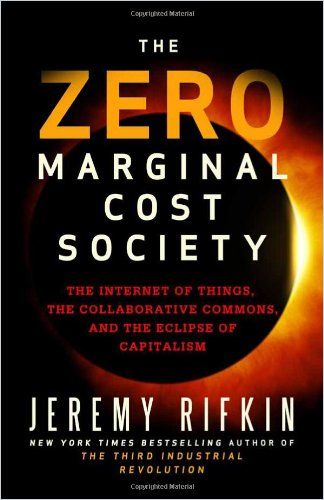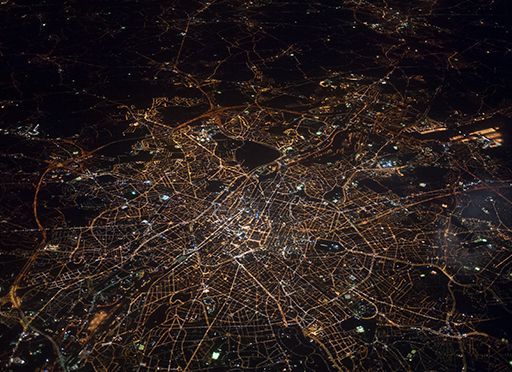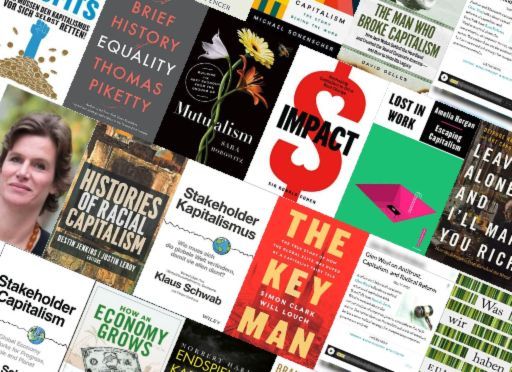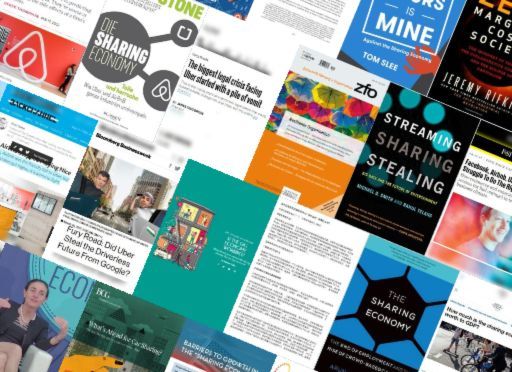Prolific futurist Jeremy Rifkin predicts the end of capitalism and a communal world of sharing and cooperation.

When Life Costs Nothing
An Optimistic Futurist
Author, futurist and economist Jeremy Rifkin describes society’s march toward an economy of sharing, cooperation, social experience and broad empathy. He weaves history, economics, psychology and science into a cohesive, compelling vision of a radically different but desirable future. His predictions span the next 30 to 50 years, but today’s broad social movements accelerate so rapidly that some of his forecasts could become reality more quickly.
Rifkin’s central theme is that the world is changing for the better because, even though capitalism created today’s abundance, people’s attitudes are shifting to collaboration, sharing and conservation. A hardened realist might predict humanity’s inexorable decline into oblivion, but those seeking an alternative future will appreciate Rifkin’s hopefulness.
The distributed, collaborative and laterally scaled nature of the Internet of Things will fundamentally change the way we manufacture, market and deliver goods in the coming era.Jeremy Rifkin
Rifkin betrays an optimism that might seem naive in less knowledgeable hands. He describes a world in which capitalism’s complete success renders it superfluous, as technology brings the cost of nearly everything down to almost nothing. This, he maintains, will create an abundance that leaves no one in want. Rifkin envisions machines and artificial intelligence doing almost everything, as humans pursue transcendence through connections and heightened empathy. Rifkin nonetheless acknowledges the severe challenges humanity faces, notably climate change and cyberterrorism.
The Financial Times said, accurately, that the value of Rifkin’s thoughts don’t “lie in the accuracy of [his] specific forecasts, but rather in [his] extrapolations of current trends.” Forbes wrote, “Rifkin is very good on the historical origins of the giant, vertically integrated organizations that dominated the 20th-century economy. [He] makes a powerful case that…it is these giant hierarchies that are the anomalies of economic history.”
Redundant Capitalism
Rifkin explains how the capitalist model encourages organizations to produce goods and services more efficiently by devising better systems and embracing new technologies. This cycle makes goods cheaper and earns businesses market share, but it ends when prices fall to nearly nothing. In a “zero marginal cost society,” scarcity – the foundational ingredient of capitalism – becomes abundance and renders capitalism redundant.
Rifkin says that the economy of 2050 will look nothing like today’s economy. Connected by the internet, and increasingly, by the Internet of Things (IoT), people are already collaborating to produce and share goods and services. This trend will accelerate and expand.
Rifkin say energy improvements account for 86% of the unprecedented gains in productivity over the past 200 years. Expanding clean energy production, combined with the means of distribution, will fuel the new collaborative, sharing economy.
Exchange value becomes useless because everyone can secure much of what they need without having to pay for it.Jeremy Rifkin
Rifkin reports that the costs of capture devices for wind, geothermal and, particularly, solar energy fall as their efficiencies increase. He sees the marginal cost of distributing clean energy dropping to almost zero. However, Rifkin expresses fears that cyberterrorists could take down the US electricity grid, which would cost millions of lives and destroy the nation’s fabric.
Print It
The internet and 3D printers will give everyone, Rifkin believes, the means to create what they use and sell. Rifkin sees 3D printers as agents of revolutionary change, especially when they can print new versions of themselves and the solar cells that power them.
Rifkin admits his vision demands extensive and costly infrastructure, and he warns that whoever pays for it will shape the economic future. People can enjoy an open, near-zero marginal cost society or suffer the continuation of today’s proprietary and closed system.
Every energy revolution in history has been accompanied by its own unique communications revolution.Jeremy Rifkin
Already, and in league with governments, energy producers pass the costs of renewable energy infrastructure projects to consumers while retaining ownership. These efforts will probably fail, Rifkin asserts, as third parties offer homeowners ever-more sophisticated ways to plug in to the grid.
Rifkin warns that, as the energy internet arrives, utilities and power companies will block small producers from distributing through the grid. Large energy firms – huge components of national economies – will prove difficult to dislodge. But, Rifkin believes, when the Internet of Everything connects communications, energy and logistics to every vehicle, person and product, no single corporate enterprise will be able to resist.
Cooperative, Collaborative and Social
In a world of true abundance, he maintains, people consume less because they will no longer compete for, collect or hoard possessions or wealth. Within two or three decades, the IoT, including the communications, energy and logistics internet, will reduce the cost of most things to near nothing. As birth rates continue to decline, he adds, the global population will decrease to a sustainable five billion people.
My sense is that the Millennial Generation is not a monolith but rather a mix of contradictions.Jeremy Rifkin
Fortunately, says Rifkin, younger generations tend toward connectivity, collaboration, inclusion, sharing, empathy, and environmental and social awareness.
Prescience
Rifkin displays remarkable prescience in describing young people’s collective consciousness about social cohesion. Chapter 10 – which thoroughly takes apart the ideas behind the famous treatise “The Tragedy of the Commons” – stands on its own as a classic essay. Rifkin’s thinking and predictions won’t resonate with everyone; you need to take a willing leap of imagination to visualize a world without megacorporations, conflict and greed. Though his scope feels a little too broad, and he repeats his central themes too often, Rifkin makes his optimistic vision seem almost possible, but only if everything unfolds as he predicts. Is this pie in the sky or a possible, hopeful vision?
The central question is: When every human being and every thing is connected, what boundaries need to be established to ensure the individual’s right to privacy will be protected?Jeremy Rifkin
Jeremy Rifkin’s many, many books – some of which have been translated into 35 languages – include The New Green Deal, The Third Industrial Revolution, The Age of Access, The European Dream, The End of Work and Time Wars.







